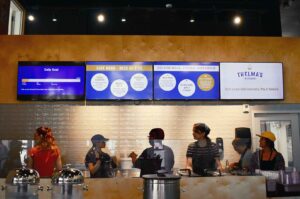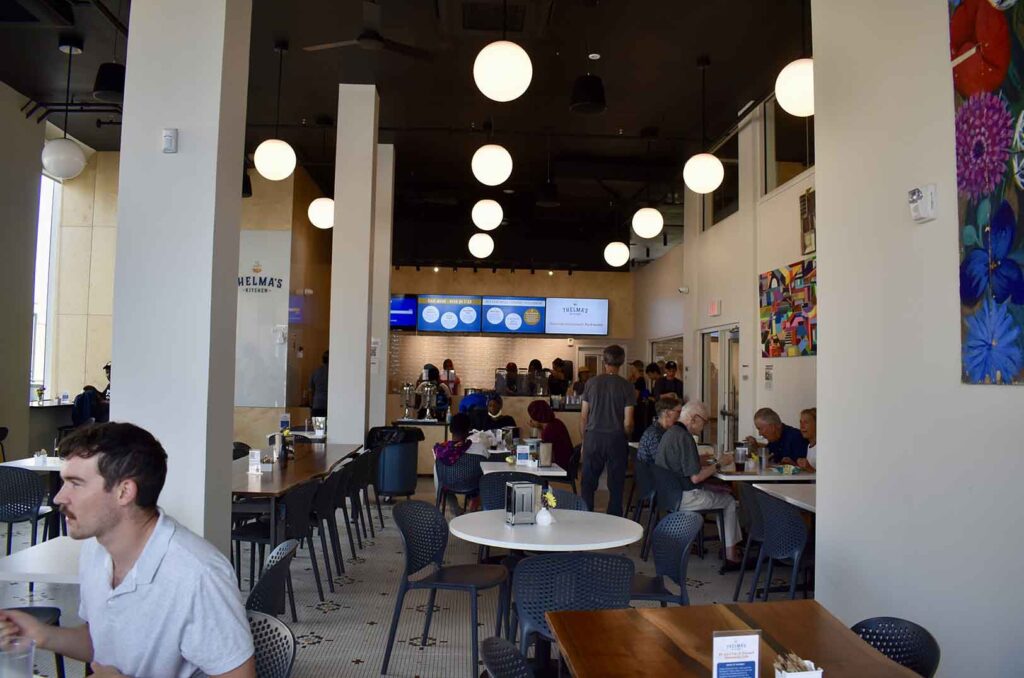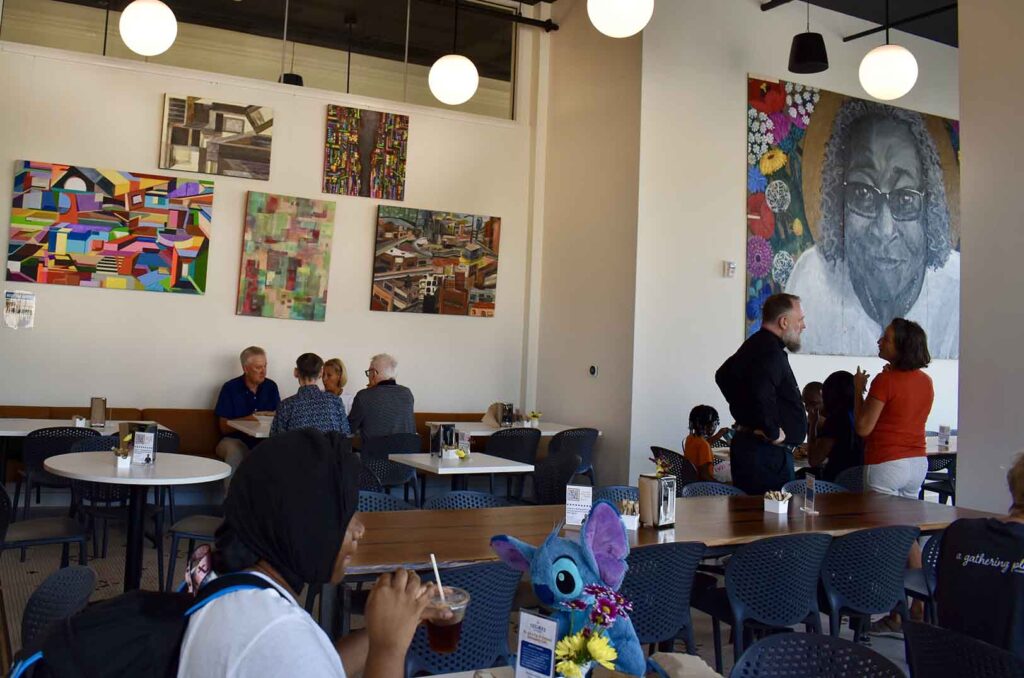The reopening of Thelma’s Kitchen — a pay-it-forward restaurant on Troost Avenue — not only flips the menu on the “soup kitchen” concept, but serves as an anchor of compassionate, community-focused care in the face of neighborhood gentrification, said Father Justin Mathews.
“We view what we’re doing here as kind of like urban acupressure,” said Mathews, CEO of Reconciliation Services, the parent nonprofit of Thelma’s Kitchen. “It’s a particular pressure point in the body of the city where when you press in a very specific way, it can cause a greater healing that can be multiplied and ripples out from here.”
The restaurant debuted at the busy intersection 31st and Troost in 2018, but closed to in-person dining in March 2020 as the COVID-19 pandemic began to unfold in Kansas City and across the globe. A catering operation later continued Thelma’s Kitchen’s work as its physical space — and the building around it — underwent a massive renovation project.
A July 22 relaunch event invited diners back.
Using a Pay-It-Forward model to serve comforting, healthy meals for everyone, regardless of their ability to pay, Thelma’s Kitchen operates as a powerful example of social entrepreneurship, combining market demand with community need, Mathews said.
“We are each other’s bootstraps,” he continued. “It’s meant to be each of us sacrificing a little bit so that we take care of everyone.”
A welcome return
The business model at Thelma’s Kitchen lets guests sponsor a lunch for someone else or let staff know they would like to pay what they can afford. Additionally, Reconciliation Services case managers distribute tokens to clients, which can be redeemed for a meal.
“It is so good to get back in,” said Mathews, reflecting on the operation resuming its potential in one of Kansas City’s food deserts that serves individuals who often are overlooked.
RELATED: Thelma’s Kitchen cooks up pay-what-you-can cafe concept to preserve community
The old model of a soup kitchen can be full of difficult power dynamics that can produce shame for anyone just by walking in, he added.
At Thelma’s Kitchen, Mathews said, the Troost community can enjoy their meals free of judgment.
“Part of the beauty of this model is nobody feels ashamed walking into an incredible restaurant at the corner of 31st and Troost, and as you find out that everyone is welcome and everybody can eat,” he said.
A rotating menu, crafted by Chef Natasha Bailey and her team, features items like hot turkey sandwiches, chef salads and more. Bailey created the menu with the purpose of being filling and comforting, but also nutritious. The cafe also still offers catering services.
Diners who previously visited the space will note the return of a mural of Thelma Gardner, the restaurant’s namesake, that is featured in the newly renovated dining area, honoring the woman known for her philanthropy and feeding the community with her cooking.

Father Justin Mathews, Thelma’s Kitchen, Reconciliation Services; photo by Nikki Overfelt Chifalu, Startland News
Designed for community, by community
Thelma’s Kitchen’s latest chapter begins after a comprehensive community listening campaign, where leaders from Reconciliation Services listened and surveyed the community on what they wanted the 31st and Troost building to provide.
“We heard clearly that they needed services like rent and utilities assistance, trauma therapy, and social services, but they also wanted community-facing, affordable retail that’s welcoming to all of us,” said Mathews.
Click here to read more about Reconciliation Services and its mission.
To meet these needs, the redesigned space includes more electric outlets for phone charging, improved language access, and trauma-informed volunteer training. Any excess proceeds from Thelma’s Kitchen also go to support social and trauma therapy services.
The upgraded kitchen also now features extensive storage space, allowing partnerships with local farmers and urban agriculture efforts to increase healthy food access.
Thelma’s Kitchen remains committed to sustainability and community partnerships, Mathews emphasized, noting collaborations with organizations like Kanbe’s Markets and KC Can Compost to integrate fresh produce and manage food waste effectively.
Another key partnership showcased at the July 22 grand reopening: Smithfield Foods donated $50,000 for protein to be served at the restaurant.











































